Fresh vegetables for everyone: CSAs in the watershed
Farmer Gale Livingstone of Rainbow Hill Farm connects with neighbors through community supported agriculture
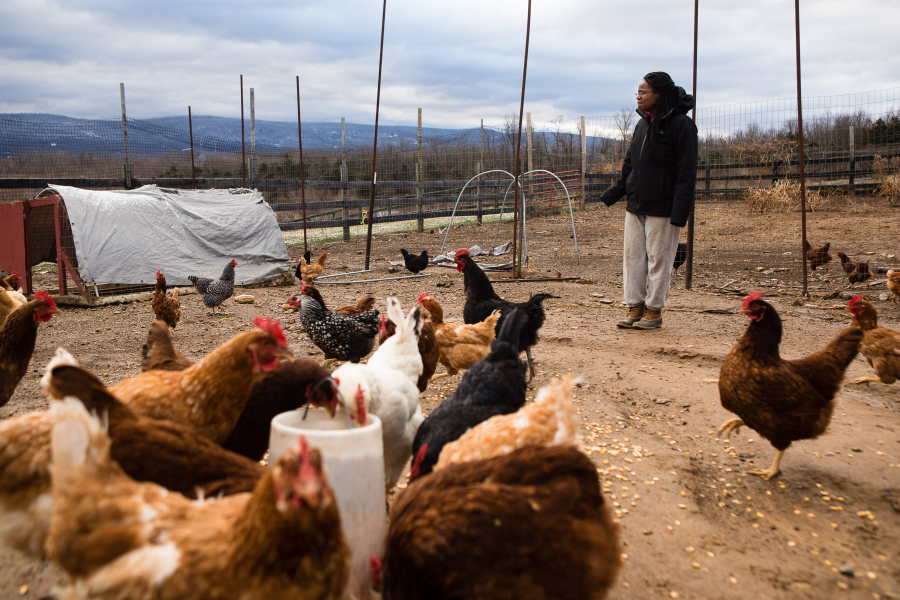
You might think it, but farms in winter are not barren, sullen and empty. Fields are covered in the dark fluttering green of cover crops, often a mix such as rye, Austrian snow peas and hairy vetch. Chickens of every color, clucking in the early morning, dot the land. Walking through the doorway of the Rainbow Hill farmhouse in Charles Town, West Virginia, drops you directly into a welcoming kitchen and a sense of tranquility.
A rooster-shaped scale sits on the counter, while a fresh basket of eggs rests expectantly next to it. Old black and white movies are playing on the television in the next room, and hundreds of tender green seedlings grow in the sunny windows while snow flurries swirl outside. This is February on a farm, and winter preparations are clearly underway for the flurry of customers craving fresh spring produce.
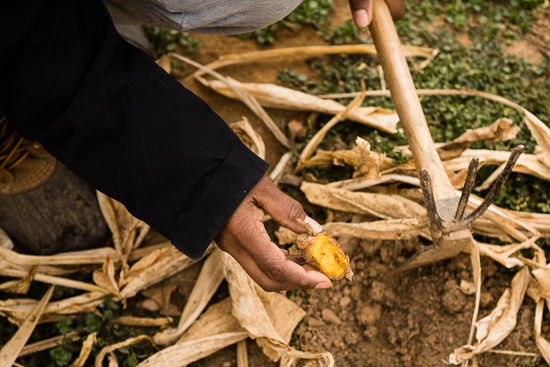
At Rainbow Hill, customers pay a single sum at the beginning of the season and are then supplied with a box of produce on a regular basis. Customers know where their produce is coming from, can be confident in how it is grown and don’t have to hike to the store on a weekly basis for produce that has traveled thousands of miles. By offering shares, the farmer is provided with capital to run a successful farm, and relationships are built that benefit both farmer and customer. This arrangement is referred to as Community Supported Agriculture (CSA), and it is gaining in popularity across the country.
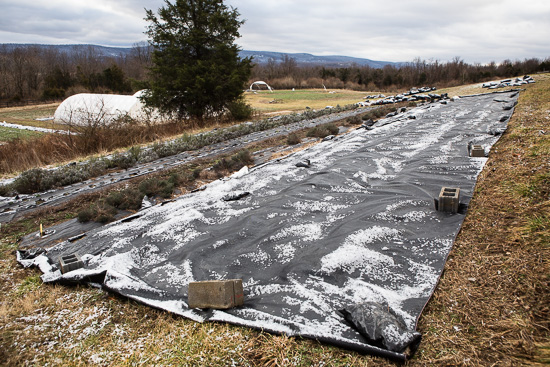
What about those who cannot afford a CSA share? Are they left to scout the supermarket? Not hardly! A small number of workshares are often offered in addition to traditional shares. In this model, a person will help do the work on the farm for a few hours per week in exchange for their full share of produce.
Gale, former federal consultant and current serene farmer of Rainbow Hill, knows the value of workshares. “When I started [growing vegetables in buckets on the porch], I realized I was so happy, so at peace,” she says. Now a full time farmer, she loves what she does but does not have the help to make full use of her land. Offering two workshares this year at four hours per week, she is hopeful the added hands will allow her to farm more of her land.
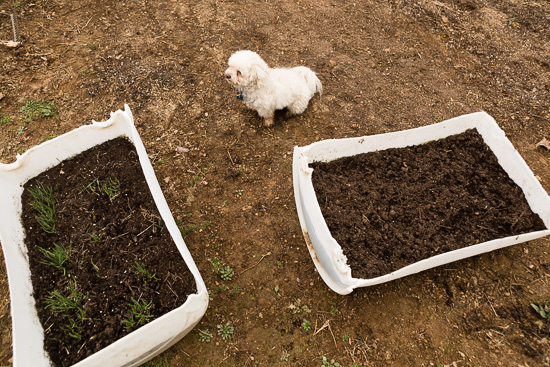
Each CSA, farm and farmer offers a different experience. Rainbow Hill’s share includes eggs from her free-range, leafy green-eating chickens. Last year she lost 30 percent of the flock to predation from raccoons, eagles and coyotes, but considers it an acceptable cost for the gain of giving her chickens space: “…because, you know, you want them to be happy!”
Contented birds on a diet of foraged insects and farm greens seem to make the difference in her chicken and duck eggs—several customers at her farmers market will go without buying eggs rather than purchase from another farmer.
Experiences like this are not unique. Farmers and the public forming relationships, along with enjoying healthy produce, is an intangible gain that cannot be overlooked. It takes a lot of time and effort for a farmer to sustain a CSA, but being part of this system offers a valuable peace. As Gale puts it, “you try to get away from it every year, but the community needs you and it feels good... to be self-sustaining and to give that kind of value to your community.”
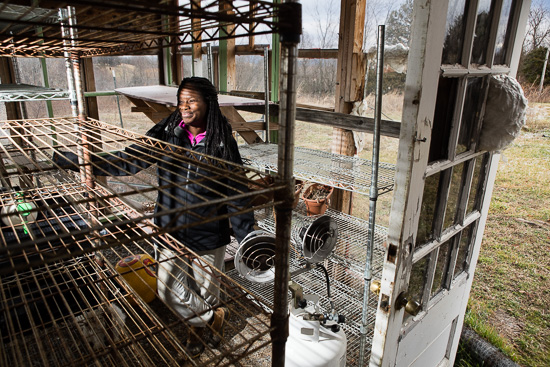
The beauty of CSAs is they’re not just for those in close proximity to a farm. Even if you live in the heart of the city, there’s a CSA for you. In that spirit of forming relationships, farmers are connecting with each other as well. Rainbow Hill, which has the benefit of space to grow plants like tomatoes and peppers, partners at a farmers’ market with an urban farm in Washington, D.C. that grows greens, as well as another smaller farm. This three-part harmony allows smaller farms to be connected in their local community and still offer a variety of items, creating a web of community relationships that cross geographical boundaries.
There is great interest across the country in sourcing locally-grown produce and supporting local farmers. Among the younger generations, there is an increasing desire to personally grow food, but most don’t know where to start. Many people cannot afford the high cost of constantly keeping fresh vegetables on the table, but know the value of healthy eating. CSAs, and workshare options within them, offer those interested the opportunity to get acquainted with new vegetables and learn to work a farm. For farmers, markets and the burgeoning CSA communities offer the chance for urban farmers with vertical greenhouses or rural farmers with sprawling acres to get connected.
Interested in joining a CSA? Chat with your favorite farmer at the market or hit the web and find your perfect CSA match:

Comments
There are no comments.
Thank you!
Your comment has been received. Before it can be published, the comment will be reviewed by our team to ensure it adheres with our rules of engagement.
Back to recent stories